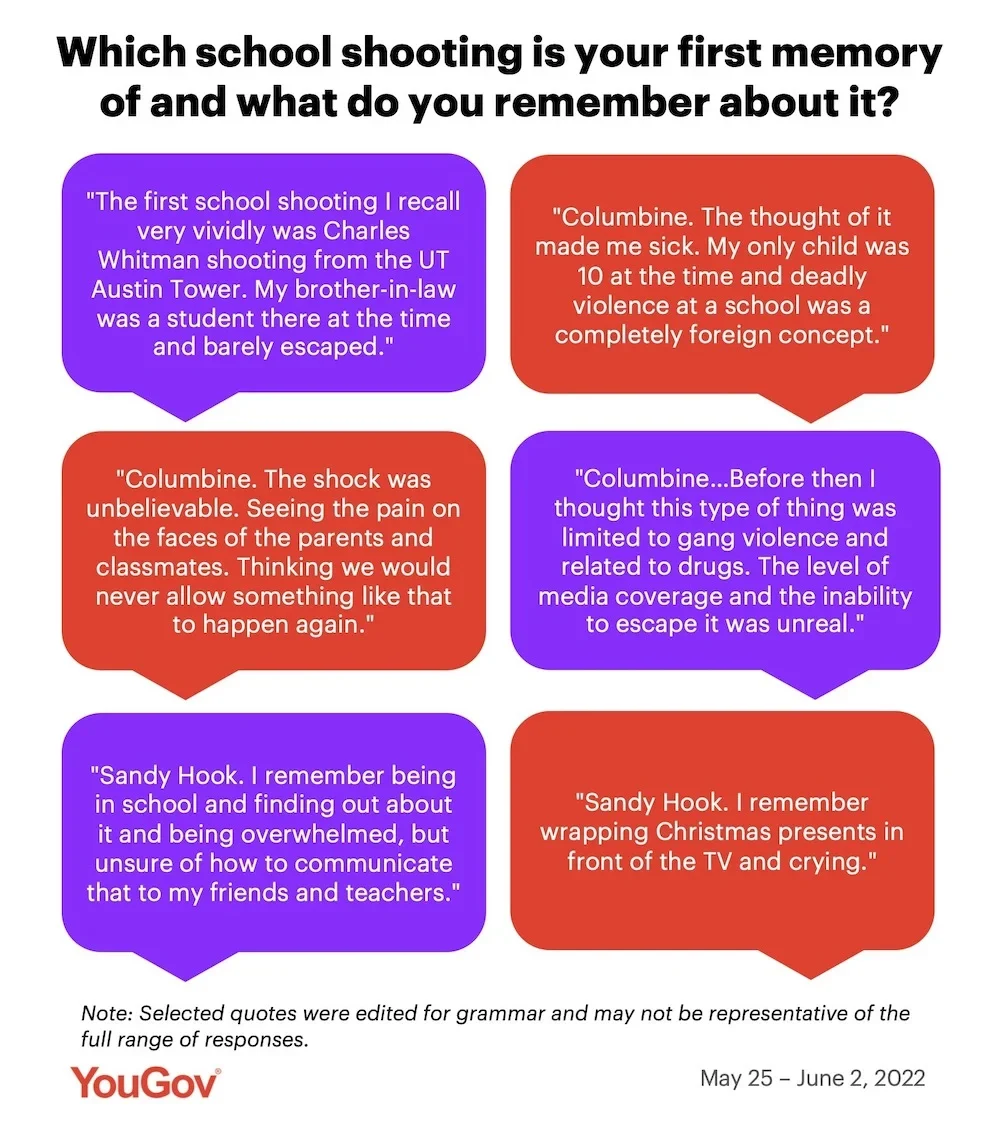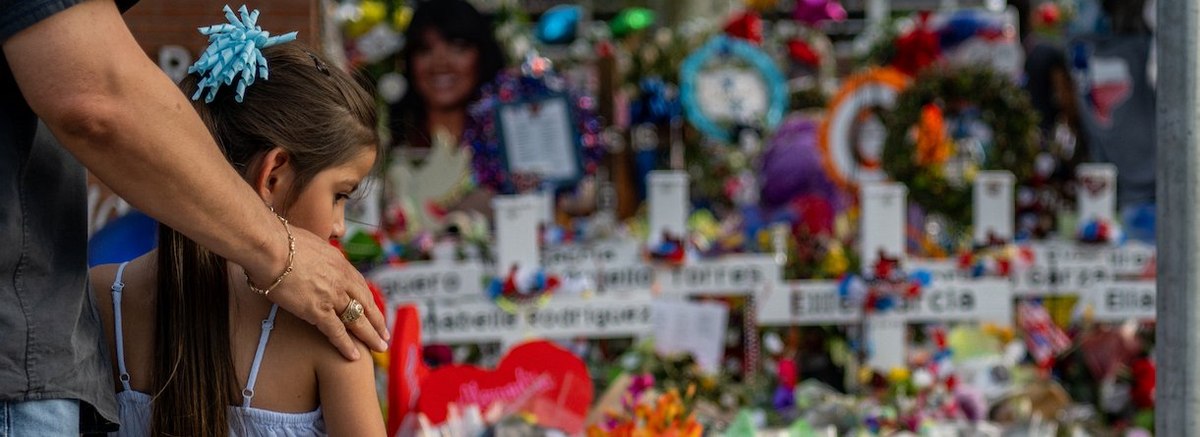High-casualty school shootings are a relatively recent phenomenon in the United States. In a poll conducted shortly after the most recent mass school shooting in Uvalde, Texas, we asked Americans to recall their earliest memories of school shootings, as well as their own experiences with school-shooting drills. While many Americans recall not being worried about mass shootings when they were in school, most parents of school-aged children today express a great deal of worry over their own children becoming victims.
In a recent survey, we asked Americans to recall the first school shooting they remember, and to tell us what they remember about it. Two-thirds (67%) of the 560 people who provided valid responses say their first memory is of the 1999 shooting at Columbine High School in Columbine, Colorado. The next most common response, reported by 15% of people, was the 2012 shooting at Sandy Hook Elementary School in Newtown, Connecticut. Fewer (5%) remember one of the earliest mass school shootings, which occurred in 1966 at The University of Texas at Austin. Others recalled the shootings at Virginia Tech University in 2007 and at Stoneman Douglas High School in Parkland, Florida in 2018.
In terms of what their first memories consisted of, many people recall feelings of shock, disbelief, and horror. Some remember where they were when they first heard about the shooting – in school, at the orthodontist, wrapping Christmas presents. Some recall speculation over the motivation for the shooting as well as over the aftermath.

While few Americans recall being worried that a mass shooting would happen at their school growing up, two-thirds of parents of school-aged children today say they’re worried their child will become a victim of a school shooting. In addition, more than one in three parents believe it’s very or somewhat likely that one of their school-aged children will be a victim of a school shooting.
In the aftermath of the 1999 Columbine shooting, active shooter drills were introduced at many schools throughout the country. How many American adults today have experience participating in these drills? While only 21% of Americans remember taking part in active shooter drills as students, a majority of Americans under 30 say they did (56%). People who currently live in cities are also more likely to have experience participating in active shooting drills in school than are people who don’t live in cities.
Despite active-shooter drills' growing prevalence, only one in 10 Americans believe that the drills are very effective at preventing gun deaths in K-12 schools. A little more than one in three say the drills are somewhat effective, and an equal share say they’re not very or not at all effective.
Which school-related measures do Americans think are effective at preventing mass school shootings? We asked about six measures: metal detectors, armed security guards, police officers, mental health counselors, armed teachers, and unarmed teachers. While less than one-third of Americans say each of the measures asked about is very effective, majorities do believe most are at least somewhat effective. The one exception is unarmed teachers, which less than a quarter say are at least somewhat effective at preventing mass shootings.
Democrats and Republicans have different ideas about which measures are very effective at preventing school shootings; in general, Republicans are more likely to find the measures we polled about to be effective than Democrats are. Republicans are more than twice as likely as Democrats to say that armed security guards, police officers, and armed teachers are very effective. A similar share of Democrats and Republicans believe metal detectors and mental health counselors are effective. Neither believe unarmed teachers are very effective.
Slightly less than half of Americans say that politicians who oppose gun control but offer “thoughts and prayers” in the aftermath of a school shooting are being insincere, while about one-quarter say they are being sincere. Two-thirds of Democrats say these politicians are being insincere, compared to only one-quarter of Republicans.
— Carl Bialik and Linley Sanders contributed to this article
This poll was conducted on May 25 - June 2, 2022, among 1,000 U.S. adult citizens. Explore more on the methodology and data for this poll.
Image: Getty












